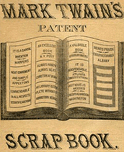

1884-1885 Nov. 5 New Haven, Conn. Nov. 6 East Orange, NJ Nov. 7 Springfield, Mass. Nov. 8 Providence, R.I. Nov. 10 Melrose, Mass. Nov. 11 Lowell, Mass. Nov. 12 Waltham, Mass. Nov. 13 Boston, Mass. Nov. 14 Brockton, Mass. Nov. 17 Plainfield, NJ Nov. 18 & 19 New York, N.Y. Nov. 20 Newburgh, N.Y. Nov. 21 Philadelphia, Pa. Nov. 22 Brooklyn, N.Y. Nov. 24 & 25 Washington, D.C. Nov. 26 Philadelphia, Pa. Nov. 28 & 29 Baltimore Dec. 1 Adams, Mass. Dec. 2 Troy, N.Y. Dec. 3 Ithaca, N.Y. Dec. 4 Muskegon, Mich. Dec. 6 Rochester, N.Y. Dec. 8 Toronto, Canada Dec. 10 & 11 Buffalo, N.Y. Dec. 12 Ann Arbor, Mich. Dec. 13 Grand Rapids, Mich. Dec. 15 Toledo, Ohio Dec. 16 Detroit, Mich. Dec. 17 Cleveland, Ohio CHRISTMAS RECESS Dec. 29 Pittsburgh, Pa. Dec. 30 Dayton, Ohio Dec. 31 Paris, Ky. Jan. 2 & 3 Cincinnati, Ohio Jan. 5 & 6 Louisville, Ky. Jan. 7 Indianapolis, Ind. Jan. 8 Springfield, Ill. Jan. 9 & 10 St. Louis, Mo. Jan. 12 Quincy, Ill. Jan. 13 Hannibal, Mo. Jan. 14 Keokuk, Iowa Jan. 15 Burlington, Iowa Jan.16 & Jan.17 Chicago, Ill. Jan. 18 Evanston, Ill. Jan. 20 Janesville, Wis. Jan. 21 Madison, Wis. Jan. 22 LaCrosse, Wis. Jan. 23 & 24 St. Paul, Minn. Jan. 26 Winona, Minn. Jan. 27 Madison, Wis. Jan. 28 & 29 Milwaukee, Wis. Jan. 30 Rockford, Ill. Jan. 31 Davenport, Iowa Feb. 2 & 3 Chicago, Ill. Feb. 4 South Bend, Ind. Feb. 5 Fort Wayne, Ind. Feb. 7 Indianapolis, Ind. Feb. 9 Columbus, Ohio Feb. 11 Oberlin, Ohio Feb. 12 Detroit, Mich. Feb. 13 London, Canada Feb. 14 Toronto, Canada Feb. 16 Brockville, Canada Feb. 17 Ottawa, Canada Feb. 18 & 19 Montreal, Canada Feb. 20 Saratoga, N.Y. Feb. 21 Brooklyn, N.Y. Feb. 26 Philadelphia, Pa. Feb. 27 Baltimore, Md. Feb. 28 Washington, D.C. |
By clicking on the detail above, you can see a version of the tour itinerary that was printed sometime before the whole schedule was worked out; it includes the names of the hotels where the performers would stay, and refers to each Sunday as a day of "Rest" – as Cable, a strict sabbatarian who refused even to travel on Sundays, insisted. The schedule at left is based on the narrative of the tour in Twins of Genius, by Guy Cardwell, as corrected on the evidence of letters or reviews. When a date on the list appears as an active link, clicking on it will take you to an excerpt from a letter by MT or Cable about that performance. (If the letter is in red, it's MT's; in blue, it's Cable's.) Whenever a city name appears as an active link, it will take you to a local review of that performance. Apparently MT left most of the itinerary up to Major Pond, but he did determine some of the details. He specified the two swings into Canada to allow him to be "in residence" there when Huck Finn came out, hoping to secure the novel against pirates. He also requested the inclusion of Hannibal (where, he wrote Pond, "I spent my entire boyhood, in company with Huck Finn & Tom Sawyer") and Keokuk (where he performed for his mother). An unanswerable question is how deliberately Pond or MT or both avoided routing the tour into the South. Although Cable was from New Orleans, his published views on both the Old and the New South had made him a very controversial figure in the region. At no point in his long platform career, however, did MT perform in public further south than the border states of Maryland, Kentucky and Missouri. In a letter to Livy, on the other hand, he called the people who came to see him in Paris, Kentucky, "a southern audience" -- and said it was "a delight to talk to folks like that." After speaking in Louisville, he wrote Livy that southern audiences always brought out the best in him. Ticket prices ranged from 25-75 cents in towns; 75 cents to $1 in cities. In places like Washington and Philadelphia, audiences sometimes topped 1000 people, but the average attendance for a show was probably 500-600. According to Paul Fatout, in Mark Twain on the Lecture Circuit, the gross receipts for the tour were $46,201; after expenses (including $6750 to Cable) MT made about $15,000. Although temperamentally MT and Cable may remind us of Luigi and Angelo (in "Those Extraordinary Twins"), on the whole the pair made a good performing and traveling team. It was on the tour, for example, that Cable introduced MT to Malory's Morte d'Arthur, which started them referring to Pond's brother Ozias (who took over from the Major as traveling agent) as "Sir Sagramore the Desirous" and led within a few years more to MT's writing Connecticut Yankee. Cable also considered it a great personal or perhaps moral victory when, after the tour's final performance in Washington, during the two men's last day together, he got MT to go to church with him. But MT was always easy to exasperate. As the tour went on, his comments in letters home about his partner grew steadily angrier. He accused Cable of padding expenses, and costing more than his contribution to the show was worth, and became particularly impatient with Cable's piety and those Sundays of Rest. After it was over MT wrote Howells to say that the time with Cable had taught him "to abhor and detest the Sabbath-day and hunt up new and troublesome ways to dishonor it." In May, 1885, two months after they'd come off the road, Cable was shocked to read in a Boston paper a pair of attacks on his character that could only have come, indirectly at least, from MT himself. The two remained cordial whenever their paths crossed, and Cable continued to speak of the tour as one of the highlights of his life, but after it ended the two men drifted apart. |

